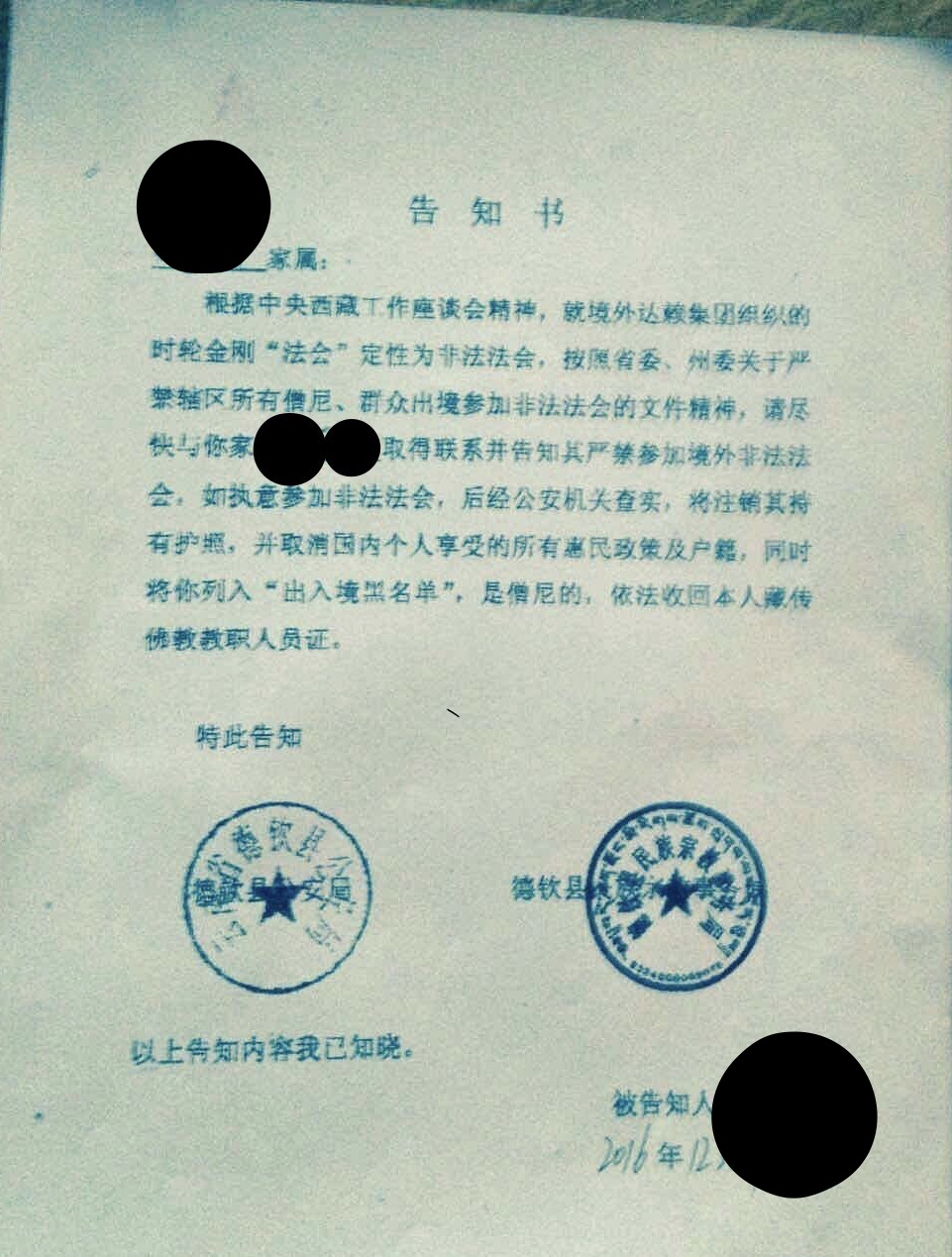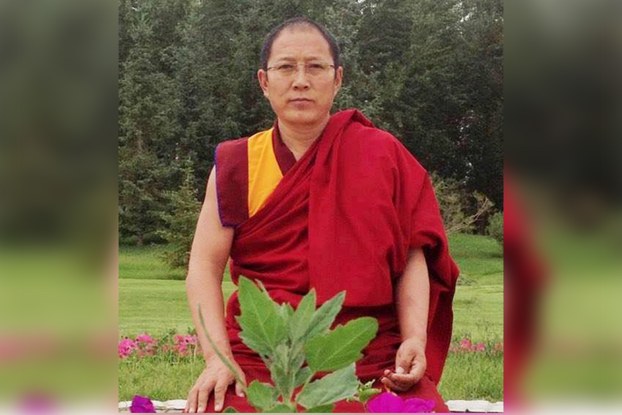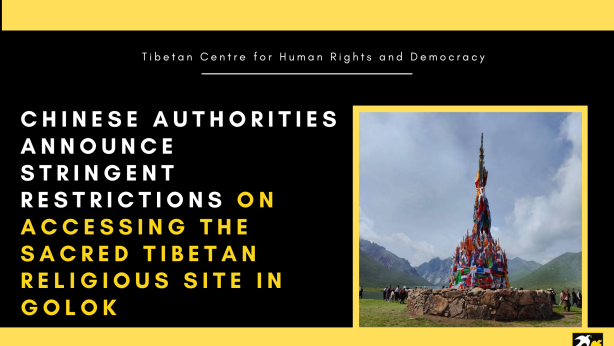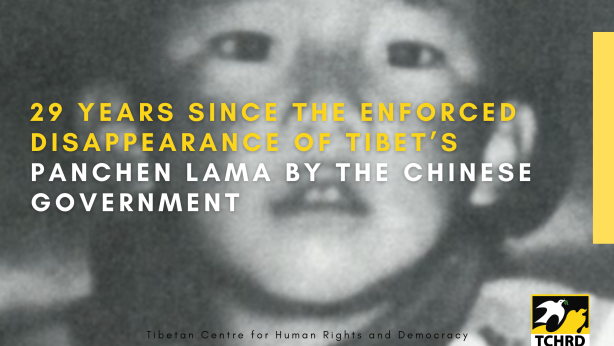China: Stop violating right to freedom of religion and belief of Tibetans

Chinese authorities issued two separate directives last month to prohibit the Tibetan monastic community and the general public from participating, either in person or remotely, in the Kalachakra religious teachings given by the Tibetan spiritual leader His Holiness the Dalai Lama in India. Organised by the Central Tibetan Administration, the 34th Kalachakra teachings began on 3 January and will go on until 14 in Bodh Gaya in the northern Indian state of Bihar.
The directives issued by Dechen County government authorities in Dechen (Ch: Deqin) Tibetan Autonomous Prefecture, Yunnan Province, describe the acts linked to Kalachakra teachings that are deemed criminal and to be punished accordingly. The first directive, issued by the County Public Security Bureau (PSB) and County Religious Affairs Bureau (RAB) in December last year, orders local Tibetans to immediately contact their family members and ask them not to participate in the “illegal religious teachings organised by the Dalai clique”. Then it warns that those who defy the order and “persist in participating in the illegal religious teaching will be thoroughly investigated by the PSB” and their passports cancelled. Ordinary Tibetans will be deprived of government welfare schemes and their household registration cards (Tib: Themtho; Ch: Hukou) confiscated by local authorities. If the offenders are monks and nuns, their membership cards will be revoked by the officials of Buddhist Association of China. The second directive prohibits Tibetans from reading about or sharing pictures, audio or video related to the “illegal religious teachings” on the internet. This restriction specifically targets any initiatives among local Tibetans to organise gatherings to listen to the Kalachakra teachings or other events to honour or celebrate the teachings.
The directive threatens criminal charges for those who commit the so-called Kalachakra-linked crimes. Those failing to comply with the order would be charged of violating Article 55 of the Law on Penalties for Administration of Public Security, which carries penalties for ‘illegal gathering’ ranging from 10 to 15 days detention. Article 55 stipulates: “A person who incites or engineers an illegal gathering, parade or demonstration and refuses to listen to dissuasions shall be detained for not less than 10 days but not more than 15 days.” If the crime is deemed serious, harsher punishment will be given under Article 296 (‘Disrupting Public Order’) and Article 103 (‘Endangering State Security’ or ‘ESS’) of the Chinese Criminal Law, in addition to deprivation of political rights and other restrictions. The crime of disrupting public order could send someone to prison for more than five years while Article 103 could result in 15 years imprisonment or worse, life or death sentence. Article 296 provides that “Whoever holds an assembly, parade, demonstration without application in accordance with the law or without authorisation after application, or does not carry it out in accordance with the beginning time and ending time, place, and road as permitted by authorities concerned, and refuses to obey an order to dismiss, thereby seriously sabotaging social order, those personnel who are in charge and those who are directly responsible are to be to be sentenced to not more than five years of fixed-term imprisonment, criminal detention, control or deprived of political rights.” Part of the ESS crimes, Article 103 states: “Whoever organizes, plots, or acts to split the country or undermine national unification, the ringleader, or the one whose crime is grave, is to be sentenced to life imprisonment or not less than ten years of fixed-term imprisonment; other active participants are to be sentenced to not less than three but not more than 10 years of fixed-term imprisonment; and other participants are to be sentenced to not more than three years of fixed-term imprisonment, criminal detention, control, or deprivation of political rights.” Further, this article also includes a provision on inciting separatism: “Whoever instigates to split the country and undermine national unification is to be sentenced to not more than five years of fixed-term imprisonment, criminal detention, control, or deprivation of political rights; ringleaders or those whose crimes are grave are to be sentenced to not less than five years of fixed-term imprisonment.”

On 3 January, Chinese government officials and PSB officers visited Machu (Ch:Maqu) County, Kanlho (Ch: Gannan) Tibetan Autonomous Prefecture, Gansu Province, which is the site of the latest self-immolation, and warned the staff members of Monastery Management Committees to monitor the behaviour of the monks in their respective monasteries. In particular, former Tibetan political prisoners who had been jailed for their participation in the 2008 uprising were summoned to the County PSB office between 1 November 2016 to 1 January 2017. They were warned against watching videos and photos of Kalachakra teachings, or encouraging others to listen to the teaching and share photos and videos of the teachings on social media. This proves that the directives issued in Dechen County are also being implemented in other Tibetan areas. The contents of both directives expose the falsity of recent claims made by Chinese authorities that they did not prohibit Tibetans from attending the Kalachakra teachings. The directives further reinforce the fact that religious repression is one of the most urgent issues facing Tibetans in Tibet.
One of the most compelling evidences of religious repression in Tibet came from a voice message of a respected senior monk at Rongwo Monastery in Rebkong (Ch:Tongren) County, Malho (Ch: Huangnan) Tibetan Autonomous Prefecture, Qinghai Province. In a defiant and passionate criticism of the ban on the Kalachakra teachings, Venerable Jigme Lodoe, former disciplinary master at the monastery, speaks in a voice message recorded on 9 January that is now being circulated on WeChat:
“I know I am talking about things that I should not be talking about. If anyone wants to arrest me, they can do so. His Holiness the Dalai Lama is giving religious teachings. More than 100 Tibetan brothers and sisters have self-immolated for the Tibetan cause. Even now I grieve for them and light butter-lamps in their memory. I want to wail and I am wailing! There is no freedom for us Tibetans! This is our fate! That many of our compatriots have to live in foreign lands. We have no opportunity to get audience with His Holiness the Dalai Lama. Why can’t we rise up? My hope is you too will wail with me! My hope is you too will say the things I have said. May be this is our fate that we have to live under the domination of another. Give us the right to peace! Stop repressing us! [sobs…] Our people are scattered everywhere. Tibetans inside and outside, parents and children, have no way of meeting each other. Have you ever thought about why this is so? I pray that we see a day of freedom and reunion. His Holiness! His Holiness! His Holiness!”
Another audio recording of Ven. Lodoe’s speech presented at a December 2012 workshop held in Qinghai Province has surfaced in recent days on WeChat. (The Tibetan language section of Radio Free Asia has published a summarised transcription of the speech.) In an unusually bold and honest appraisal of Chinese government’s policy on Dalai Lama, Ven. Lodoe demanded that Dalai Lama be allowed to return to Tibet without any conditions at the three-day workshop held at the Qinghai Institute of Socialism. The senior monk is further heard as saying, “Tibetans put more faith in their root Lama than their parents. When His photos are not allowed to be displayed, there is no way they can practice freedom of religion. This is one of the reasons why self-immolations take place”. He then rejects the Chinese government propaganda on Dalai Lama that the Tibetan spiritual leader is a separatist and instigator of self-immolations, adding that the Tibetan spiritual leader is known internationally for his firm belief in non-violence and world peace. His speech was mainly a reaction to one of the topics on Dalai Lama that was discussed at the workshop.
The workshop was organised by County United Front Work Department and Religious Affairs Bureau and was attended by officials of Malho Tibetan Autonomous Prefecture and Rebkong County United Front Work Department and Religious Affairs Bureau, Monastery Management Committees, Township and town officials, reincarnated lamas and monks from different monasteries in Rebkong County. Topics discussed at the workshop were: ‘No Change in Party’s Policy on Dalai Lama’; ‘Chinese Laws on Nationalities’; ‘Unity of Nationalities and Social Stability’; and ‘Nature and [Harmful] Effects of Self-immolation’.
Apart from implementing the repressive directives, Chinese authorities also tightened security along Tibet’s border region purportedly to battle the risks of terrorism and separatism. The real purpose of the intensified border security is to disable the movement of Tibetans from inside Tibet to visit India for Kalachakra teachings. Similarly, keywords related to Kalachakra are found blocked on WeChat in English, Chinese, Tibetan and Hindi in group chat mode when using an account registered to a Chinese phone number. This is apparent move on the part of Chinese authorities to deter the Tibetans inside Tibet from listening to Dalai Lama’s teachings.
The Tibetan Centre for Human Rights and Democracy (TCHRD) strongly condemns the systematic violation of the right to freedom of religion and belief of the Tibetan people and calls on the Chinese authorities to stop the illegal and unconstitutional practice of targeting Tibetans for practicing their religion and belief. His Holiness the Dalai Lama is the spiritual leader of the Tibetan people. The right to freedom of religion and belief of the Tibetan people cannot be protected and promoted without respecting and acknowledging the centrality and importance of Dalai Lama in the Tibetan religion and belief system. The right to freedom of religion is a fundamental human right protected in the Universal Declaration of Human Rights (UDHR) and the International Convenant on Civil and Political Rights (ICCPR). Chinese Constitution also guarantees the right to ‘freedom of religious belief’, in addition to formal, explicit guarantees for human rights. The Chinese Communist Party may have a ‘basic policy on religion’ that denies freedom of religion to more than 80 million of its members, but the fundamental rights of the citizens of the People’s Republic of China are guaranteed in the country’s constitution and one of the most important responsibilities of any government is to protect and promote these rights. As Tibetan writer Mar Jang-nyug wrote in his book, ‘Ancestor’s Tomb’: “The individual citizens are the ends for which the state is established. The individuals do not exist for the state. The state has a duty to protect the inalienable rights of the citizens”.


